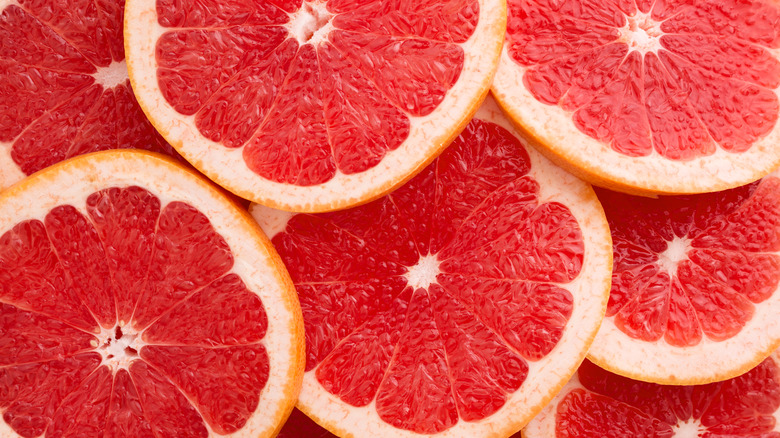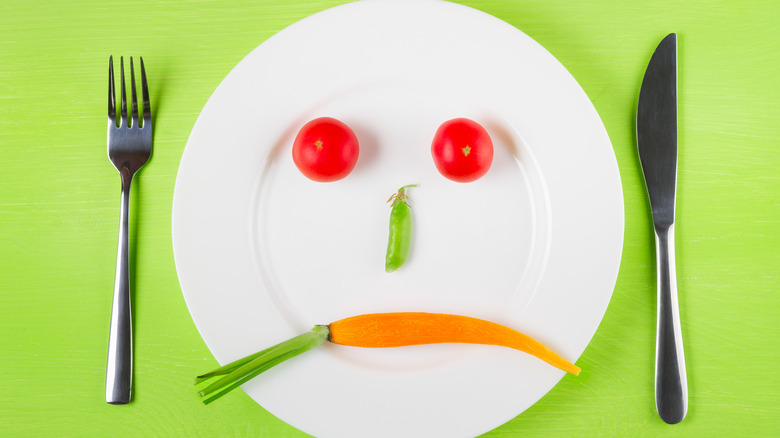What You Should Know About The Chemical Diet
Many diets tend to build themselves on the same pieces of foundational advice. These can include getting enough sleep to eating balanced meals to reducing stress. All of these things can impact the way your body handles the stored energy that fat is made of.
Some diets, on the other hand, try to find a unique approach. These can be especially appealing for people who struggle to lose weight when they follow traditional advice. And since these diets usually promise huge results in short windows of time, they're even more appealing.
The Chemical Diet is part of this second group. Healthline reports that there is very little on the origin of the diet, and independent digging didn't turn up anything to explain where it started.
It appears on many weight loss and diet blogs, however. And in every appearance, the posts say the same things. Dieters must follow the diet's strict eating plan, and snacks are not allowed. They can expect to lose up to 14 pounds in just one week, although the CDC says that a maximum of 2 pounds a week is the safe limit. But what few mention is that there is absolutely no scientific backing to this diet.
It's a crash diet
The Chemical Diet gains most of its credibility from the claim that dieters lose weight thanks to the chemical composition of certain food combinations. These combinations almost always include some form of tomato or grapefruit and either eggs or chicken as protein, when a protein is included at all.
But as Healthline points out, there is no scientific backing to these claims. None of the weight loss sites checked during this article's research listed supporting studies or reports either. Instead, the sites listed daily meal plans that dieters had to follow exactly, with no substitutions or additions. And when these days are broken down by calories, the Chemical Diet looks more like a crash diet.
A typical day on the Chemical Diet suggests a glass of fresh grapefruit juice for breakfast (96.3 calories), fresh fruit for lunch (100 calories for 1 cup of fruit), and a grilled chicken breast for dinner (211 calories) with one grapefruit (106 calories) and carrots (52 calories). At the end of the day, you will only have consumed 585.3 calories. This means the weight loss isn't coming from the diet's unique combination of foods. It's coming solely from calorie restriction.
Cosmo states that crash diets do more harm than good. They can ruin your metabolic rate and lead to weight gain, while also affecting your mood and energy levels and weakening your immune system. And, by the numbers, a crash diet is exactly what the Chemical Diet really is.

